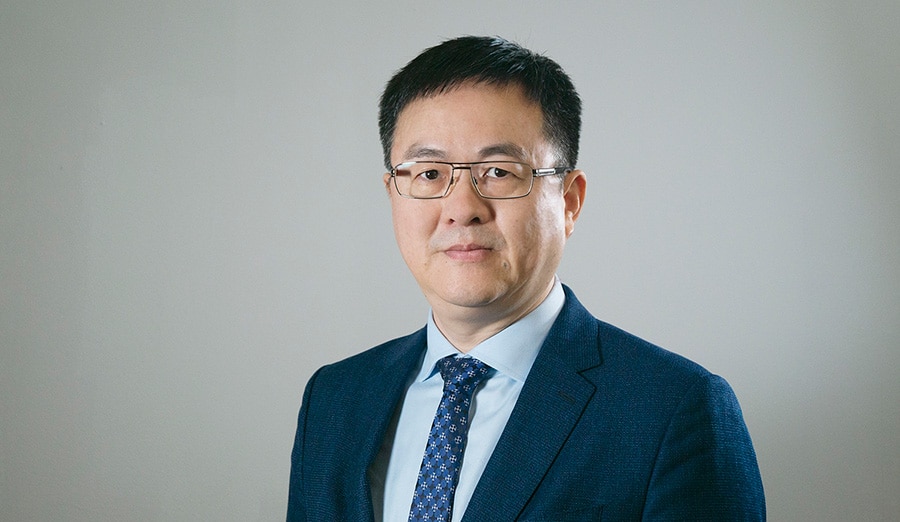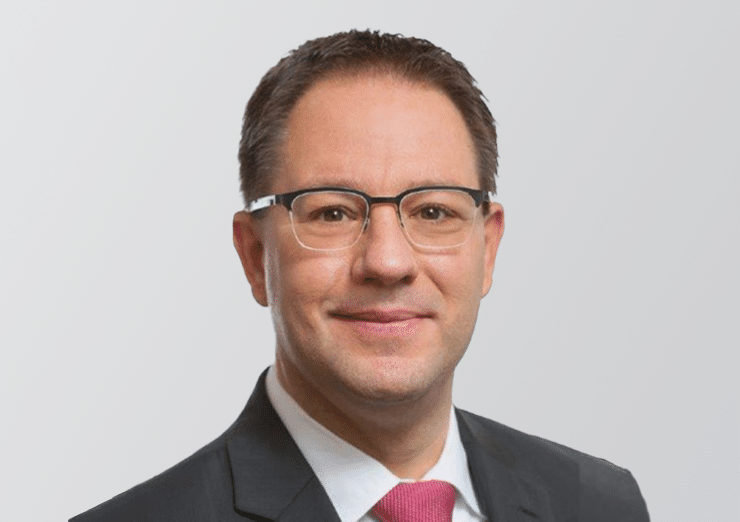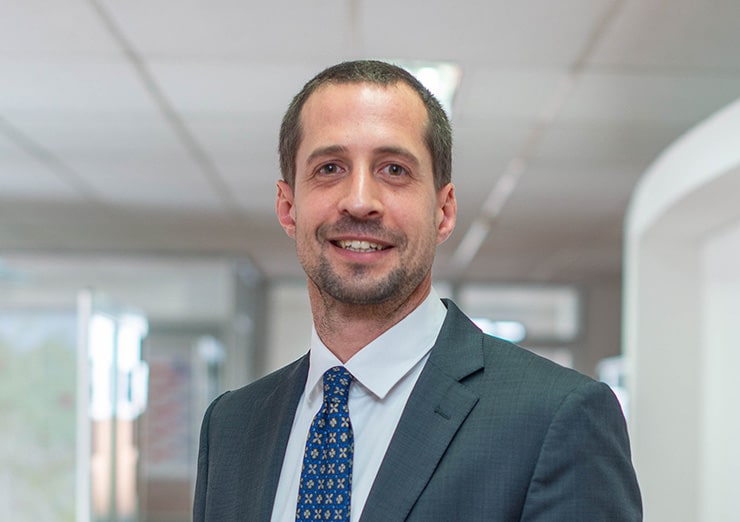Energy Transition
Interview with Kevin Tu, Agora Energy Transition China
We talked to the Managing Director of Agora Energy Transition China, and Senior Advisor China of Agora Energiewende about the mission to develop evidence-based and politically viable strategies to advance the goal of climate neutrality in Germany, Europe, and the rest of the world. An interview from our #peopleinournetwork series.

Kevin Tu, Managing Director of Agora Energy Transition China, and Senior Advisor China of Agora Energiewende
Kevin Tu is a senior advisor at Agora Energiewende, leading projects on China’s energy and climate policies. He is also an adjunct professor at the School of Environment of Beijing Normal University, and a non-resident fellow at the Center on Global Energy Policy of Columbia University, Institut français des relations internationales (Ifri) and the Institute of Energy at Peking University.
Before joining Agora, Kevin led the China energy & climate programs at International Energy Agency (IEA) and Carnegie Endowment for International Peace. Earlier, he held key managing positions in the energy consulting business and the oil & gas industry.
Kevin has more than two decades of solid experience in the energy and environmental fields in Asia Pacific, North America and Europe. His research covers the full spectrum of energy issues, including fossil fuel value chains, energy transitions, energy sector reforms as well as climate change, with a focus on EU-China relations and U.S.-China relations, and their implications for China’s energy and climate policies. Kevin obtained a Master of Resource & Environmental Management and a Bachelor of Chemical & Mechanical Engineering.
Dear Mr Tu, thank you for taking the time to talk to us today. For a start, why don’t you tell us a bit about yourself?
Hello, yes, of course! I have always worked in the energy sector. Throughout my career the focus of my work shifted more and more towards renewable energies, and sustainable solutions to combat climate change.
I followed the example of my father, who spent his entire career in the Chinese oil industry, studied chemical and mechanical engineering, and started my career working for one of the largest Chinese oil companies: Sinopec. After that, I took the position as project manager to supervise the construction of China’s first atmospheric refrigerant LPG terminal, located in Shenzhen – not much more than a small fishing village back in 1978, transitioned into a modern metropolis at that time. I stayed to manage the LPG marine operations for a while, however, I increasingly realized the environmental impacts of Shenzhen’s booming economic activities including this project, and this is what inspired me to go to Vancouver, Canada, to study Resource and Environmental Management at Simon Fraser University.
It was the beginning of 17 years of living abroad, working for diverse organisations in different parts of the world, with the common objective to support sustainable energy transition. After graduation, I started to work as an energy and environmental consultant in Vancouver for seven years, primarily consulting the Canadian Federal Government. It was the disappointing Copenhagen Climate Summit in 2009, failing to deliver a global deal for deeper emission cuts, that motivated me to move to the United States, where I became a senior fellow and director of the China energy and climate program at Carnegie Endowment for International Peace, with the aim to bridge the differences between climate policies of China and the USA – the world’s two biggest CO2 emitters.
In 2013, I changed positions and started working for the International Energy Agency (IEA) in Paris, trying to make China become a member of the IEA. I made certain progress with this mission: In 2015, China was one of the first countries to become an IEA associated country, and in 2017 the IEA’s China Liaison Office was founded in Beijing. After my return to China five years ago, I first took a non-resident fellowship at Columbia University, before starting my affiliation with Agora Energiewende, establishing Agora’s China operations to promote the EU-China collaboration on energy transition and climate change.
Why did you choose the German Centre as your office location in Beijing and what do you like? about it?
When searching for suitable workspaces in 2021, German Centre Beijing was recommended to us by various friends and partners from our network. After visiting the German Centre for a couple of times and comparing it to other options, our whole team agreed that it would be the perfect place to establish Agora’s new China office.
In retrospect, we are very happy with our decision. Not only are we impressed with the fantastic service and commitment of the German Centre team. Moreover, it is great to be surrounded by so many German key organizations and enterprises, make valuable connections, and be part of the very active Sino-German business community in Beijing.
What are main areas of cooperation between China and Germany in the field of decarbonization and clean energy transition?
The economic relations between Germany and China are tremendous. China was, once again, Germany’s largest trading partner in 2021, with volumes reaching over 245 billion euros. Being based at the German Centre, I meet manufacturers and trading companies from all different kind of industries that benefit from strong bilateral relations, including the energy sector.
However, when looking at current geopolitical tensions, I hope that both countries adjust and optimise their politics towards the other side, with a focus on creating win-win cooperations. Collaborations that only provide benefits for one party, are unsustainable and will eventually put relations at risk.
This is also the base for both countries’ successful cooperation in energy transformation and decarbonisation. Even in this relatively uncontroversial field, there are various examples for cooperation going through a sticky patch. For instance, as China becomes the largest clean energy market in the world, Chinese manufacturers are dominating the global PV module market, and similar developments can be observed in the wind turbine markets. To avoid previous disputes over subsidies for Chinese solar panel manufacturers, level playing field is in urgent need to promote mutually beneficial Europe-China collaboration on energy and beyond.
That’s why we, at Agora Energiewende, with offices in Berlin, Brussels, Bangkok and Beijing, examine sustainable energy transition from a neutral position and international perspective, with the mission to develop viable strategies to advance the goal of climate neutrality and strengthen international cooperation.
You mentioned China’s dominance over certain clean energy technologies. What advice do you have for international climate tech companies entering the Chinese market, and where do you see opportunities for German enterprises and products?
Even though Germany is currently facing many challenges, such as the ongoing European energy crisis, I am rather optimistic regarding recovery of Germany’s overall economy, as well as chances and opportunities for German enterprises from the renewable energy sector in international markets. The Russo-Ukrainian War and other global disruptions are expected to substantially impact global clean energy transition, with short term implications not necessarily consistent with longer term ones.
It is right that Chinese renewable energy suppliers and manufacturers were quickly catching up and became increasingly competitive. However, all countries have their own strengths and weaknesses. Major strengths of the Chinese economy include high manufacturing ability, based on a strong workforce with the ability to nurture supply and value chains. But on the other side, there are also apparent weaknesses embedded, such as a certain lack of innovation, as well as insufficient regulatory framework in support of clean energy transition.
The establishment of a new type of power system with Chinese characteristics will bring both opportunities and risks to market players. How to identify the appropriate market, or niche market, is important for sustainable operations of international companies in China. China’s international energy cooperation should prioritise Europe, and especially key EU member countries like Germany. Ideally, both sides should create a level playing field for bilateral collaboration on investment, trade, and manufacturing.
Back then, when I worked at Carnegie Endowment for International Peace, I once was invited to meet Dr Stephen Chu, former US Secretary of Energy. The key message of his speech was that, to establish sustainable cooperation between U.S. and China, both countries should learn from each other. I couldn’t agree more, and the same goes for Sino-German relations. Especially in times of rising geopolitical tensions, each country should analyse its own advantages and weaknesses, and try to overcome own weaknesses by learning from other countries’ experiences.
Thank you very much, Mr Tu!
About Agora Energiewende/ Agora Energy Transition
Agora Energiewende develops robust policy proposals for decarbonising the economy. In doing so, they rely on the targets set by the German government and the European Union and on research carried out by the Intergovernmental Panel on Climate Change (IPCC).
Since its founding in 2012, Agora Energiewende has become one of Europe’s leading energy and climate policy think tanks. Over the years, they have developed many proposals and presented them to the public. They have also forged a growing network of partner organisations that perform similar functions in their own countries.
In addition to research, Agora Energiewende promotes dialogue and public relations in its capacity as a go-between for decision-makers, interest groups, researchers, and media. A dedicated team, which is composed of over 100 members, provides answers to questions that are decisive for the clean-energy transition and a climate-neutral industry, be they economic, technological, or political.
Since 2019, Agora Energiewende has significantly expanded its operations in China by establishing a strategic partnership with Agora Energy Transition China, a Beijing-based energy transition research institution. The organisation works closely with like-minded partners to support China’s dual carbon goals of peaking national carbon emissions before 2030 and achieving carbon neutrality before 2060.
Similar articles
Meet more people in our network
Have you met Markus Schmauder?
The Head of Trade Finance for Bavaria, Saxony and South/East Wuerttemberg spoke to us about current trends among German companies abroad.
Have you met Edwin Schuh?
Edwin Schuh knows Latin America quite well. He shared some insights with us on doing business in Mexico and other emerging countries.










